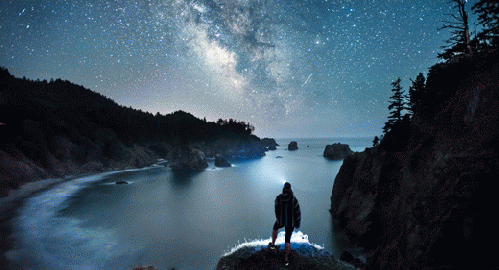The liberal, enlightened culture that claims the high ground in Western society is Science-based. We learn without ever being told that there is an objective material reality that you can kick, and that's all there is. No spirits, no mind-to-mind communication, no afterlife, nothing at all mysterious. Get real! It's atoms and electromagnetic forces all the way down.
If something happens that gives you a glimpse into another reality, then your brain has a glitch. That's OK, buddy. All of our brains have glitches. The key is just to get a grip, remember where reality is, return to the deep grounding of what we can all see and hear.
A big part of the cultural upheaval that we call The Sixties was the psychedelic experience. Were LSD and psilosybin a fast track into a world that had been denied by our drab, materialist culture? Or were they a form of temporary insanity, distorting the true picture of reality that was painted pretty consistently by our un-drugged senses?
I came of age in The Sixties, and opted out of the drug culture, bought into the Scientific world view in its narrowest sense. Only later in life have I come to acknowledge the mystical moments that occasionally flash forth from the humdrum background. I have followed the path of science, and it has led me quite outside the dogma that is the Scientific Worldview.
Michael Pollan, of all people, has a new book in which he describes research programs in which people's sanity has been enhanced by psychedelic drugs. Our government's War on Drugs conflated psychedelics with addiction; but Pollan tells stories of people who have escaped from tortured lives of addiction with the help of a few brief psychedelic experiences.
The nerds who live at ground zero of our materialist culture create the computer code that runs our communications, transportation, distribution, and (increasingly) decision-making. They work so many hours that they have no time to eat or socialize, and we imagine that they, more than any of us, are fully immersed in the materialist's reality. How strange to read that they take microdoses of LSD to keep them focused on their work, creative and productive.
From their lab at University of Toronto, Thomas Anderson and Norman Farb are collecting stories of people who take microdoses of psychedelic drugs, compiling statistics and questioning whether the reputation of "dangerous" is warranted. They are discovering benefits that far outweigh the risks.
The NIH database of clinical trials lists 233 ongoing studies of psychedelics. There's this one at John's Hopkinsand this one in Helsinki.
I don't have any experience with psychedelic drugs, but what I do know is that the narrow, materialistic world-view that has been passed off as "scientific" has imprisoned our minds and driven millions into despair or depression. Whole universes of human potential have been squeezed out of us. We'll find our liberation where we can, and for some, psychedelics provide an open door.






